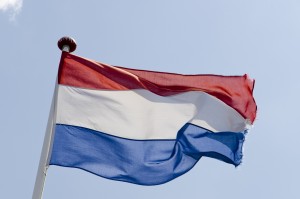The Netherlands is one of the two least sustainable countries in the EU

Some two months ago I stumbled upon an article of The World Economic Forum that a friend of mine shared on his Facebook wall. Proudly it was announced that there were six countries in the world that are “leading the charge” towards renewable energy: Morocco, Bangladesh, China, Mexico, Tanzania and Turkey. Additionally, Vietnam announced in January that they will abandon all their future plans and projects to maintain coal (which has traditionally been the country’s leading deliverer) as their primary source of energy and replace them by renewable energy resources wherever they can. Finally, also Uruguay revealed that they are by now receiving 94.5% of their energy from renewable resources including wind and solar, without having to raise prices for the energy consumer.
Unfortunately, the same cannot be said of the Netherlands. That the Dutch government is reluctant to adopt and implement new renewable energy policies, is not necessarily anything new. However, a relatively recent report (2015) by the European Environmental Agency (EEA) has now pointed out that we are actually the worst of the European Union in this respect of sustainability, together with Luxembourg.
[perfectpullquote align=”right” cite=”” link=”” color=”” class=”” size=””]Wait… What?![/perfectpullquote]
The share of the energy coming from renewable resources in both Luxembourg and The Netherlands is no more than 2%. Just for the record, we are talking about the richest and the fifth richest (with Denmark, Sweden and Ireland in between) country of the European Union respectively, if you look at their GDP’s per capita. And yes, I know that a GDP per capita is only a country’s average, and yes, I know it can normally not account for internal differences. But it does give a good and quick snapshot of the country as a whole.
And this snapshot tells me the Netherlands is far behind, where it should be able to be far up front. It is however tragic that our country is being outrun on this point, for example by Morocco, where the income of an average inhabitant of the country is 6% of that of an average inhabitant of the Netherlands. Besides that, the EU-countries in which sustainable energy policies are implemented on the smallest scale are, apart from France (11) and Malta (16), all countries that belong to the top 10 richest countries of the 28 member states of the European Union: Ireland (4), The Netherlands (5), Belgium (9); and finally, Luxembourg (1), where the average income is higher than in Norway, higher than in Switzerland, and higher than in Ireland and the Netherlands together. In a way this is positive, as we are at least not the only country in the EU where one can question the reasons for almost not having sustainable energy. On the other hand, comparing ‘Europe’s worst’ with ‘the world’s best’ (the eight countries listed in the beginning of this article) in the sense of how rich they are on average, shows that all the EU member states are on top, followed by the other eight countries.
 Let me clarify this. The fact that the average incomes in EU countries are higher than many countries anywhere else in the world is nothing new. Nevertheless, I can’t help but wonder why it is exactly that these EU countries invest so disproportionately little in renewable energy. I agree with the fact that the Netherlands will never have a climate in which it is so easy to become a “solar super power” as it is for Tanzania, Turkey, Mexico or Morocco, but nobody is going to tell me that any of these countries have more wind than we have here either. Regarding that, the fact that we are a small country without enough space to build windmills is an equally bad argument. We have at least 2000 KM2 of sea that is surrounding us. Is there anybody who can tell me why building new windmills there would be more (sight) pollution for beach bar owners and consumers than the oil drilling platforms that are already in the North Sea, and in some cases in sight of the coastline?
Let me clarify this. The fact that the average incomes in EU countries are higher than many countries anywhere else in the world is nothing new. Nevertheless, I can’t help but wonder why it is exactly that these EU countries invest so disproportionately little in renewable energy. I agree with the fact that the Netherlands will never have a climate in which it is so easy to become a “solar super power” as it is for Tanzania, Turkey, Mexico or Morocco, but nobody is going to tell me that any of these countries have more wind than we have here either. Regarding that, the fact that we are a small country without enough space to build windmills is an equally bad argument. We have at least 2000 KM2 of sea that is surrounding us. Is there anybody who can tell me why building new windmills there would be more (sight) pollution for beach bar owners and consumers than the oil drilling platforms that are already in the North Sea, and in some cases in sight of the coastline?
A few months ago I read an interview with the former leader of the Dutch liberal party (VVD), Frits Bolkestein. He stated that Turkey is a country which is simply too poor to be able to join the EU (while Romania and Bulgaria, both members since the year 2007, are actually poorer). Nowadays, one of Bolkestein’s follow-ups, Mark Rutte, is bound to lose the sustainability battle not only against Turkey, but also against a multitude of other “developing” countries. I really wonder who I should actually see as a developing country in this respect though: the countries with poor economic resources or the countries with poor sustainability? Time to take a look in the mirror, Mark?
